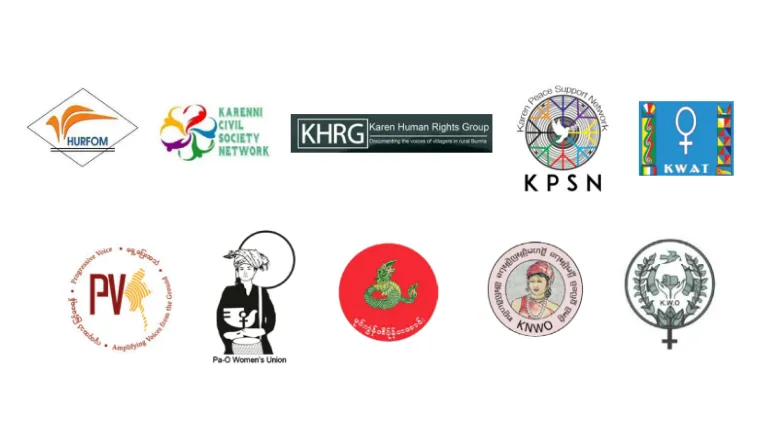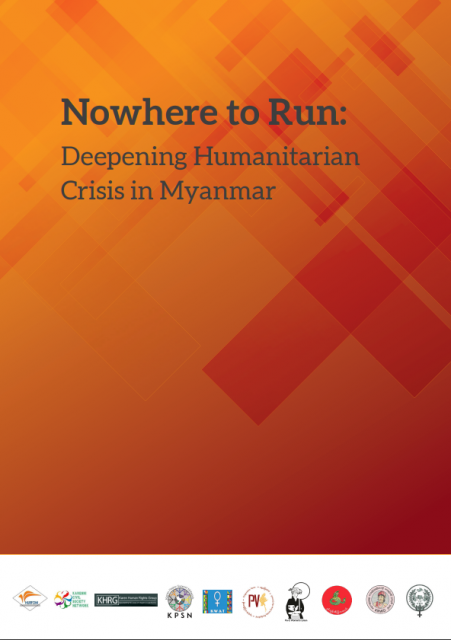Nowhere to Run: Deepening Humanitarian Crisis in Myanmar
07 September 2021


This briefing paper will provide an overview of the devastating humanitarian crisis in Myanmar, focusing on Kachin, Karen, Shan, Karenni, Chin, and Rakhine States, covering the nearly seven month period since the coup d’état attempt by the Myanmar military on 1 February, 2021. The attempted coup has severely compounded the existing humanitarian crises, straining the lives of vulnerable communities in ethnic regions, built on decades of civil war at the hands of the Myanmar military and unremedied policies and structural barriers by previous governments allowing for the safe, dignified and voluntary return of internally displaced persons. The Myanmar military’s fierce warmongering and persecution of those within the Spring Revolution has left over 3 million people food insecure, hundreds of thousands of people displaced and an economy in ruins.1 The attempted coup has precipitated a near collapse of the banking system and has fueled the uncontrolled spread of the Delta variant of COVID-19, which the military has weaponized for its own gain.
The research methodology of this briefing paper is focused predominantly on desk research due to the rapidly changing humanitarian situation in Myanmar and challenging circumstances in conducting field research in the country due to security concerns per the ongoing violence by the Myanmar military. Limited and short-form interviews were conducted with those in secure locations, providing firsthand accounts of the unfolding humanitarian crisis from different regions of Myanmar, with specific insights into how humanitarian aid can be effectively distributed within the ethnic regions and with local actors. Due to security risks, as outlined in this paper, we were unable to cover all ethnic areas and access all potential interviewees. This briefing paper revisits ethnic areas discussed in the detailed joint report “There is No One Who Does Not Miss Home” published in 2019 by 15 Myanmar civil society organizations and reiterates and builds on the continuing calls to the international donor community to support local organizations, empower their agency and decision-making and for the provision of cross-border aid.
This briefing paper is predominately limited to ethnic regions, as these regions have suffered historically from decades of conflict, humanitarian crises and shortages of aid. At the same time, it should be stressed that many of the issues and themes discussed therein apply nationwide, including central and southern Myanmar, as the devastation in the wake of the coup is not limited to tightly drawn geographical boundaries. In aid of this, recommendations given at the end of the paper will predominantly focus on ethnic regions but can be applied beyond these regions. This briefing paper covers a period from 1 February, 2021 until the beginning of August 2021, encapsulating nearly seven months since the military junta attempted to unlawfully capture power by preventing the duly elected parliament from opening its first session since the November 2020 elections. A detailed list of recommendations accompanies the findings of this briefing paper, aimed at expediting the humanitarian response to the people in ethnic regions and beyond
Announcements
21 May 2025
Open letter: Malaysia must lead ASEAN with principle, not hypocrisy, to address the Myanmar crisis

Progressive Voice is a participatory rights-based policy research and advocacy organization rooted in civil society, that maintains strong networks and relationships with grassroots organizations and community-based organizations throughout Myanmar. It acts as a bridge to the international community and international policymakers by amplifying voices from the ground, and advocating for a rights-based policy narrative.